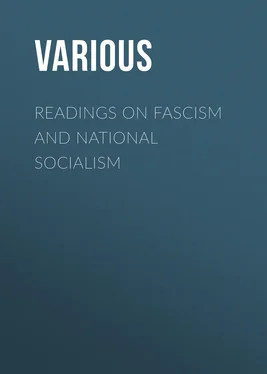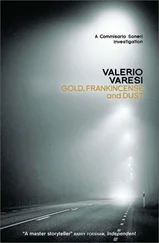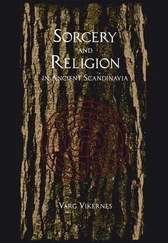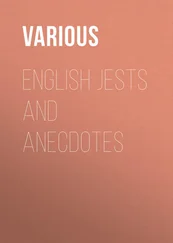Various - Readings on Fascism and National Socialism
Здесь есть возможность читать онлайн «Various - Readings on Fascism and National Socialism» — ознакомительный отрывок электронной книги совершенно бесплатно, а после прочтения отрывка купить полную версию. В некоторых случаях можно слушать аудио, скачать через торрент в формате fb2 и присутствует краткое содержание. Жанр: foreign_edu, Политика, на английском языке. Описание произведения, (предисловие) а так же отзывы посетителей доступны на портале библиотеки ЛибКат.
- Название:Readings on Fascism and National Socialism
- Автор:
- Жанр:
- Год:неизвестен
- ISBN:нет данных
- Рейтинг книги:4 / 5. Голосов: 1
-
Избранное:Добавить в избранное
- Отзывы:
-
Ваша оценка:
- 80
- 1
- 2
- 3
- 4
- 5
Readings on Fascism and National Socialism: краткое содержание, описание и аннотация
Предлагаем к чтению аннотацию, описание, краткое содержание или предисловие (зависит от того, что написал сам автор книги «Readings on Fascism and National Socialism»). Если вы не нашли необходимую информацию о книге — напишите в комментариях, мы постараемся отыскать её.
Readings on Fascism and National Socialism — читать онлайн ознакомительный отрывок
Ниже представлен текст книги, разбитый по страницам. Система сохранения места последней прочитанной страницы, позволяет с удобством читать онлайн бесплатно книгу «Readings on Fascism and National Socialism», без необходимости каждый раз заново искать на чём Вы остановились. Поставьте закладку, и сможете в любой момент перейти на страницу, на которой закончили чтение.
Интервал:
Закладка:
The capital point of the Fascist doctrine is the conception of the State, its essence, the work to be accomplished, its final aims. In the conception of Fascism, the State is an absolute before which individuals and groups are relative. Individuals and groups are "conceivable" inasmuch as they are in the State. The Liberal State does not direct the movement and the material and spiritual evolution of collectivity, but limits itself to recording the results; the Fascist State has its conscious conviction, a will of its own, and for this reason it is called an "ethical" State.
In 1929 at the first quinquiennial assembly of the Regime, I said: "In Fascism the State is not a night-watchman, only occupied with the personal safety of the citizens, nor is it an organisation with purely material aims, such as that of assuring a certain well-being and a comparatively easy social cohabitation. A board of directors would be quite sufficient to deal with this. It is not a purely political creation, either, detached from the complex material realities of the life of individuals and of peoples. The State as conceived and enacted by Fascism, is a spiritual and moral fact since it gives concrete form to the political, juridical and economical organisation of the country. Furthermore this organisation as it rises and develops, is a manifestation of the spirit. The State is a safeguard of interior and exterior safety but it is also the keeper and the transmitter of the spirit of the people, as it was elaborated throughout the ages, in its language, customs and beliefs. The State is not only the present, but it is also the past and above all the future. The State, inasmuch as it transcends the short limits of individual lives, represents the immanent conscience of the nation. The forms in which the State expresses itself are subject to changes, but the necessity for the State remains. It is the State which educates the citizens in civic virtues, gives them a consciousness of their mission, presses them towards unity; the State harmonizes their interests through justice, transmits to prosperity the attainments of thoughts, in science, in art, in laws, in the solidarity of mankind. The State leads men from primitive tribal life to that highest expression of human power which is Empire; links up through the centuries the names of those who died to preserve its integrity or to obey its laws; holds up the memory of the leaders who increased its territory, and of the geniuses who cast the light of glory upon it, as an example for future generations to follow. When the conception of the State declines and disintegrating or centrifugal tendencies prevail, whether of individuals or groups, then the national society is about to set."
From 1929 onwards to the present day, the universal, political and economical evolution has still further strengthened the doctrinal positions. The giant who rules is the State. The one who can resolve the dramatic contradictions of capital is the State. What is called the crisis cannot be resolved except by the State and in the State. Where are the ghosts of Jules Simon who, at the dawn of Liberalism, proclaimed that "the State must set to work to make itself useless and prepare its resignation?" Of MacCulloch who, in the second half of the past century, proclaimed that the State must abstain from ruling? What would the Englishman Bentham say today to the continual and inevitably-invoked intervention of the State in the sphere of economics, while, according to his theories, industry should ask no more of the State than to be left in peace? Or the German Humboldt according to whom an "idle" State was the best kind of State? It is true that the second wave of Liberal economists were less extreme than the first, and Adam Smith himself opened the door—if only very cautiously—to let State intervention into the economic field.
If Liberalism signifies the individual—then Fascism signifies the State. But the Fascist State is unique of its kind and is an original creation. It is not reactionary but revolutionary, inasmuch as it anticipates the solution of certain universal problems such as those which are treated elsewhere: 1) in the political sphere, by the subdivisions of parties, in the preponderance of parliamentarism and in the irresponsibilities of assemblies; 2) in the economic sphere, by the functions of trade unions which are becoming constantly more numerous and powerful, whether in the labour or industrial fields, in their conflicts and combinations, and 3) in the moral sphere by the necessity of order, discipline, obedience to those who are the moral dictators of the country. Fascism wants the State to be strong, organic and at the same time supported on a wide popular basis. As part of its task the Fascist State has penetrated the economic field: through the corporative, social and educational institutions which it has created. The presence of the State is felt in the remotest ramifications of the country. And in the State also, all the political, economic and spiritual forces of the nation circulate, mustered in their respective organisations.
A State which stands on the support of millions of individuals who recognise it, who believe in it, who are ready to serve it, is not the tyrannical State of the mediaeval lord. It has nothing in common with the absolutist States before or after '89. The individual in the Fascist State is not annulled but rather multiplied, just as in a regiment a soldier is not diminished, but multiplied by the number of his comrades.
The Fascist State organises the nation, but leaves a sufficient margin afterward to the individual; it has limited the useless or harmful liberties and has preserved the essential ones. The one to judge in this respect is not the individual but the State.
The Fascist State is not indifferent to the presence or the fact of religion in general nor to the presence of that particular established religion, which is Italian Catholicism. The State has no theology, but it has morality. In the Fascist State religion is considered as one of the most profound manifestations of the spirit; it is therefore not only respected, but defended and protected. The Fascist State does not create its own "God," as Robespierre wanted to do at a certain moment in the frenzies of the Convention; nor does it vainly endeavour to cancel the idea of God from the mind as Bolschevism tries to do. Fascism respects the God of the ascetics, of the saints and of the heroes. It also respects God as he is conceived and prayed to in the ingenuous and primitive heart of the people.
The Fascist State is a will expressing power and empire. The Roman tradition here becomes an idea of force. In the Fascist doctrine, empire is not only a territorial or a military, or a commercial expression: it is a moral and a spiritual one. An empire can be thought of, for instance, as a nation which directly or indirectly guides other nations—without the need of conquering a single mile of territory. For Fascism, the tendency to empire, that is to say the expansion of nations, is a manifestation of vitality, its contrary (the stay-at-home attitude) is a sign of decadence. Peoples who rise, or who suddenly flourish again, are imperialistic; peoples who die are peoples who abdicate. Fascism is a doctrine which most adequately represents the tendencies, the state of mind of a people like the Italian people, which is rising again after many centuries of abandonment and of foreign servitude.
But empire requires discipline, the coordination of forces, duty and sacrifice. This explains many phases of the practical action of the regime. It explains the aims of many of the forces of the State and the necessary severity against those who would oppose themselves to this spontaneous and irresistible movement of the Italy of the Twentieth century by trying to appeal to the discredited ideologies of the Nineteenth century, which have been repudiated wherever great experiments of political and social transformation have been daringly undertaken.
Читать дальшеИнтервал:
Закладка:
Похожие книги на «Readings on Fascism and National Socialism»
Представляем Вашему вниманию похожие книги на «Readings on Fascism and National Socialism» списком для выбора. Мы отобрали схожую по названию и смыслу литературу в надежде предоставить читателям больше вариантов отыскать новые, интересные, ещё непрочитанные произведения.
Обсуждение, отзывы о книге «Readings on Fascism and National Socialism» и просто собственные мнения читателей. Оставьте ваши комментарии, напишите, что Вы думаете о произведении, его смысле или главных героях. Укажите что конкретно понравилось, а что нет, и почему Вы так считаете.












